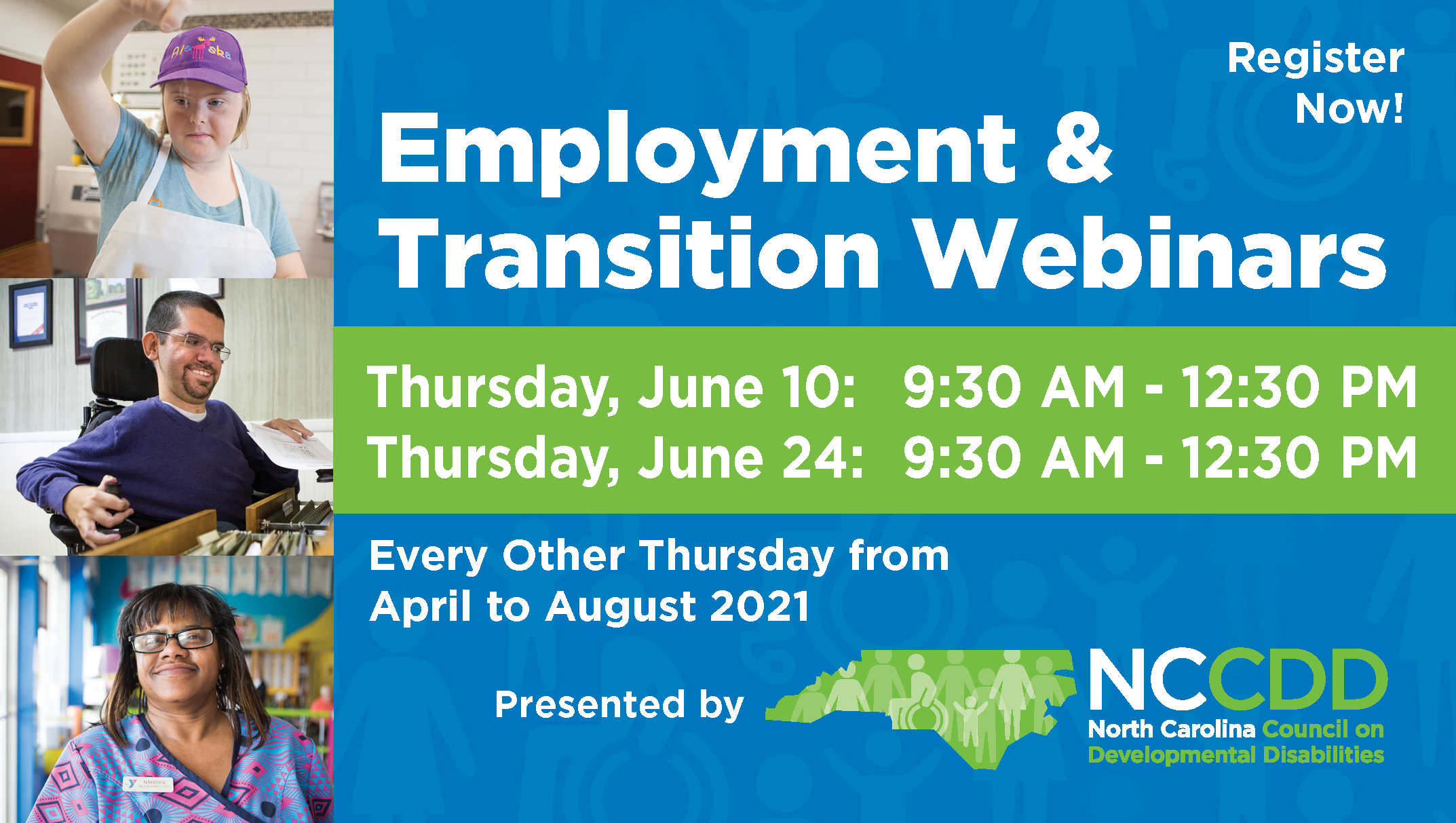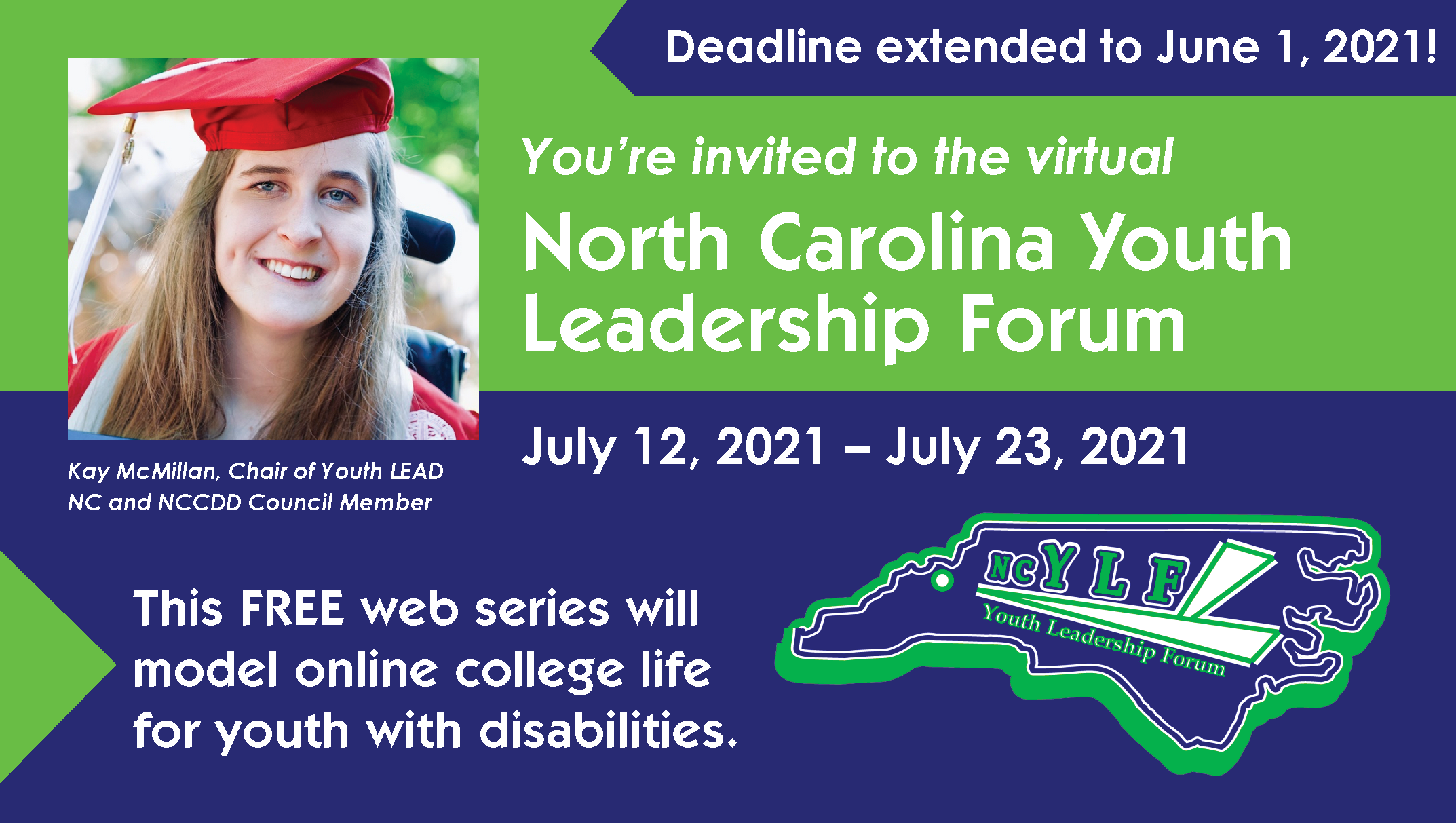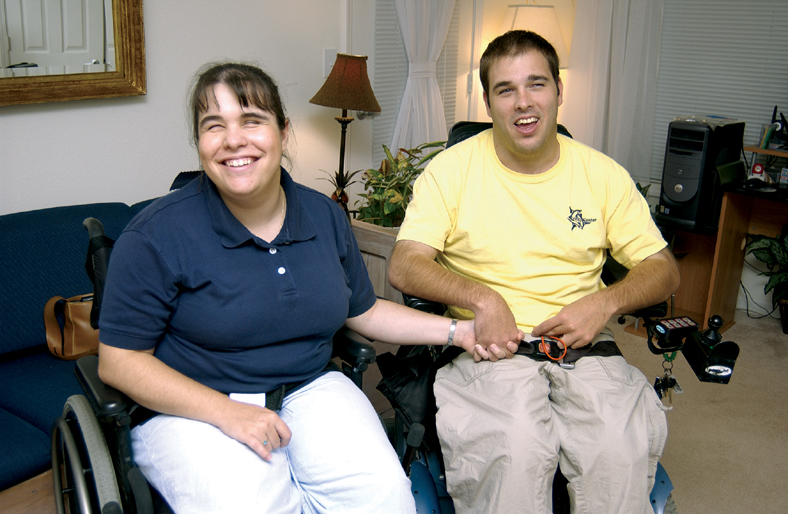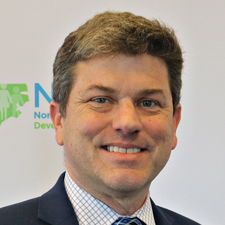May 2021 - Highlights and Hot Topics

Letter from the Executive Director
An Important Time
Before the pandemic, we used to go to the movies in the daytime. It would be disorienting to come out of a dark cold theater into a hot summer day.
It feels similarly disorienting now as we come out of this pandemic. We have been cloistered in our homes talking to each other through our computers.
There is a swirl of activity impacting the intellectual and developmental disability community as the pandemic recedes. Much of it is good, but it can be hard to keep up with it all. And we need to pay attention and advocate.
In North Carolina, the General Assembly and Governor Cooper are currently considering funding up to 1,000 new Innovations Waivers. There are also discussions of increasing direct support professional pay. At the same time, there is a school discipline bill that could cause more children with disabilities to be suspended or expelled.
Also, the Department of Health and Human Services has started Medicaid Transformation. It is finalizing plans to launch Tailored Plans next year for individuals with I/DD who have the Innovations Waiver, state-funded services, or who are on the waiting list. A critical draft North Carolina Olmstead report was just released. It is important to read and share the report.
There is a lot happening at the federal level as well. Stimulus funding is available for health services, accessing the vaccine, and returning to school. The infrastructure discussions include possible increased services for people with disabilities. There is also a bill to fund services for people on waiting lists across the country.
It is important we pay attention and advocate. (Read the Public Policy update below for more information.) There is much that needs to be done. Let’s work on all of this together. Let’s even work together in person when it is safe to do so.
Talley Wells, Executive Director
Public Policy Update as of May 12

FEDERAL
Recent Proposals
The American Jobs Plan and The American Families Plan are big proposals from President Biden that included investing in things like education, childcare, nutrition assistance, schools, and healthcare. The Republican Senate leaders also have a proposal called Road Map that invests in things like roadways and waterways.
Priorities in the disability community that are being considered as part of these large proposals include:
- Ending subminimum wages and modernizing disability employment supports to allow for competitive, integrated employment;
- Continued expansion of access to Home and Community Based Services (HCBS) for people with disabilities, ending waiting lists for services, and ensuring a stable, valued direct support workforce;
- Meeting the needs of children, including children with disabilities, in childcare and education from birth-college; and
- Ensuring all modernization of physical and virtual infrastructures are accessible.
In response to these proposals, Congress is working to put some of these ideas into action through legislation.
HR 2373 Transformation to Competitive Integrated Employment Act
This bipartisan bill introduced in Congress on April 6 phases out the use of subminimum wage certificates for people with disabilities, which many people view as outdated and unfair. The bill authorizes funds to help states transform their employment systems to promote competitive, integrated employment for people with disabilities. It also authorizes technical assistance and funding to employment providers to help them transform their business models to continue supporting people with disabilities in work with competitive wages and supports customized supports and wrap-around services to ensure that sufficient assistance and accommodations are available for those that need it. The Senate is expected to introduce a companion bill soon.
The Council’s priorities include employment, and North Carolina has a long history of encouraging competitive employment for people with disabilities. This federal legislation would further efforts to eliminate the use of subminimum wage and further the goals for community-based employment of people with disabilities.
Congress Proposes “Home and Community Based Services Access Act”
US House Representatives released a draft proposal that would mandate Home and Community Based Services (HCBS) in Medicaid to provide services, create national minimum requirements for HCBS, and make it possible to improve upon those services and the direct support professionals workforce. This would make services like those in the Innovations Waiver an entitlement with a set of services that would be available across all states.
The Council’s priorities of increasing community living and getting rid of waiting lists would be addressed through this type of legislation. This is a proposal at this point, but it is good to see these issues being discussed at the federal level.
The Direct Creation, Advancement, and Retention of Employment (CARE) Opportunity Act (H.R. 2999) would invest more than $1 billion over five years in training for direct care workers. This bill fits into the overall investment in HCBS that is part of the American Jobs Plan.
The Council has a focus on supporting DSPs as an essential aspect of enhancing community supports.
This would amend the Help America Vote Act (HAVA) of 2002 to increase voting accessibility for individuals with disabilities and older individuals. It would establish the Office of Accessibility, ensure access to accurate information and voter resources, expand the number of options to cast a ballot, establish a national resource center on accessible voting, and increase grants to states to improve accessibility.
While there are federal laws requiring fully accessible voting places, barriers to vote for people with disabilities and older adults are still there and impact their ability to vote.
STATE UPDATE
Legislative
The budget process has slowed as leadership discusses what the spending total will be for the next two years. Once a spending number is agreed upon, the Senate will start the budget process by introducing and passing their version of a two-year budget. This budget will then pass to the House, where revisions will be made. Then a conference committee will be appointed to work out the final budget.
Recent days have been hectic at the General Assembly with crossover on May 13. This is the date that a bill needs to pass either the House or the Senate to be eligible for passing and becoming law.
Some of the bills that we are tracking include:
HB 247 Standards of Student Conduct – This bill directs public school boards to develop discipline policies and would remove part of existing law that describes violations that ARE NOT considered a serious violation of conduct including “inappropriate or disrespectful language, noncompliance with a staff directive, dress code violations, and minor physical altercations that do not involve weapons or injury”.
There is concern that this bill would allow schools to easily suspend or expel students for non-serious violations and that it would unfairly affect students with disabilities.
HB 249 Children with Disabilities Funding Formula - H249 would direct the Department of Public Instruction to study the funding formula for children with disabilities and special education in public schools and consider a model that would base funding on the severity of disability. The bill also increases the cap on the current funding formula for children with disabilities from 12.75% to 13%. The study report would be due to legislative education committees by February 15, 2022.
The funding formula for special education has been a concern for a long time. A plan to address this could improve education supports for children with I/DD.
HB 914 Support Our Direct Care Workforce – This bill would provide a rate increase to certain Medicaid providers for services related to the provision of direct care and includes providers of waiver services, personal care services, and ICF/IDD group homes. It also mandates that providers use at least 80% of funding resulting from the rate increase to increase the wages paid to its direct care employees
DSP pay is a priority for the Council. This bill would provide higher wages for DSPs.
North Carolina Innovations Waiver Act of 2021 - Bills were filed in the House (H389) and Senate (S350) that would fund an additional 1000 Innovations Home and Community Waiver slots, including 200 set aside for the development of a tiered waiver to support people with a lower level of need. The bill also requires NC DHHS to convene a stakeholder group to develop a ten-year plan to address the Registry of Unmet Needs, aka those waiting for services.
It is hoped that funding for 1000 Innovations waiver slots will be in the Senate budget when it is released.
S103/H91 - Reduce Regulations To Help Children with Autism - This bill will allow behavior analysts to obtain NC licensure and provide services on their own. Both the House and Senate passed this bill and after the approval of some technical changes, it is expected to go to the Governor for signature.
This legislation will increase access to early intervention for children with autism.
HB 642 Down Syndrome Organ Trans. Nondiscrimination Act
The bill is NOT Down Syndrome specific even though that is in the title. This bill prohibits discrimination in the organ transplant process on the basis of mental or physical disability including I/DD.
This bill ensures access to needed medical care.
HB 581 – Driver’s License Designation/Autism - This bill would have the Department of Motor Vehicles develop a program to issue a driver’s license upon request that had a unique symbol in the front that would indicate that the bearer was on the autism spectrum. The same request could be made to have this information included with car registration.
There has been much discussion about these types of bills. This one is specific to autism but others have been discussed that include I/DD. There is concern about stigmatization if a symbol is on a driver’s license. Linking to the car registration is an alternate solution, but concerns about the information being kept confidential are still present.
H771 - Funds for Children with Disabilities/Extraordinary Costs/Report - This bill creates a process for schools to apply for funds for extraordinary costs for children with disabilities. It also seeks to reduce the use of modified day, homebound, and institutional school placements; and requires monitoring and reporting of students in these types of settings.
Children need to receive educational supports in their own communities and in a school setting. This bill requires more tracking of out of school services for children with disabilities.
Medicaid Transformation
The transition of Medicaid to integrated managed care is underway. This means that private health insurance companies will start managing care for most people now using Medicaid. (The state has managed Medicaid until now). This change does not change who is eligible. Those people who needed to choose a plan were sent a letter and asked to choose by May 14. They are in the Standard Plan.
People receiving services through the LME/MCOs will not have to move to managed care yet. They will be under Tailored Plans which will not begin until July 2022. These Tailored Plans will be operated by LME/MCOs who had to submit a proposal to the Dept. of Health and Human Services. DHHS is reviewing these proposals.
Tailored Plans will be similar to the Standard Plans but will also provide specialty services and supports to people with I/DD. If someone was asked to choose a Standard Plan, but thinks that they should be in the Tailored Plan, there is a form to request this.
To assist with questions about the enrollment process and the new plans, the state has set up an Ombudsman office. There is a website: NCMedicaidOmbudsman.org - and also a phone number to call to ask for assistance: 877-201-3750.
Attend June’s Employment Webinars

NCCDD is continuing its series of Employment and Transition Webinars in the month of June. The webinars educate and inform stakeholders for Employment First, transition professionals, self-advocates and families, job coaching/CRP staff, and MCO staff with an array of state and nationally recognized content experts, to provide the context and necessary components for a statewide system that provides and sustains integrated employment for all North Carolinians living with a developmental disability, regardless of complexity or needed level of support.
Register for these upcoming webinars here:
- June 10: The Role of Assistive Technology and Devices in School, Employment and Community Living
- June 24: Building Meaning Lives with an Integrated, Meaningful Day
These webinars run from 9:30 AM to 12:30 PM via Zoom with breaks as well as time for questions and answers with leading experts in employment and transition planning for people with intellectual and/or other developmental disabilities.
For the complete schedule and registration details, visit NCCDD’s website.

The application deadline for the 2021 virtual North Carolina Youth Leadership Forum (NCYLF) has been extended until June 1st! Apply TODAY to participate in this free, educational, and empowering event for young people with disabilities, ages 15-30, living in North Carolina!
Youth LEAD NC, a small youth-led nonprofit, is holding this year's virtual NCYLF from July 12th to the 23rd. Zoom sessions will be from 9:30am to 3:00pm with lunch from 12:00pm to 1:30pm. Delegates who attend will have the opportunity to meet people with similar interests, learn about the Disability Rights Movement, connect with resources in your community, and have a blast while becoming a young disability advocate!
NCYLF is a free and accessible event. Accommodations will be provided on request and arrangements can be made if internet access is a barrier. If you have any questions, please contact us at [email protected]
RUN: An Education on NC’s Medicaid Waiting List, Part Three
The Registry of Unmet Needs (RUN) is the Innovations Waiver waiting list in the state of North Carolina. NCCDD is providing a series of articles on RUN to educate and inform about what it is, where it stands today, and what you can do to impact its effectiveness and growth in the future.
When you are ready to make the call to be placed on the Registry of Unmet Needs, here are some things you should know. The number to call is 1-800-958-5596.
 You will be asked some qualifying questions including information about the disability of the person who is to be placed on the list. The term "developmental disability" means a severe, chronic disability attributed to a mental/cognitive or physical impairment or combination of mental and physical impairments diagnosed or that become obvious before the age of 22. You need to be ready to explain the disability and eventually will need to offer written proof of the disability occurring before the age of 22.
You will be asked some qualifying questions including information about the disability of the person who is to be placed on the list. The term "developmental disability" means a severe, chronic disability attributed to a mental/cognitive or physical impairment or combination of mental and physical impairments diagnosed or that become obvious before the age of 22. You need to be ready to explain the disability and eventually will need to offer written proof of the disability occurring before the age of 22.
After answering a handful of questions by phone, you will be mailed a packet of materials to complete. This is more in-depth information about the person with the disability, his/her school records, his/her medical diagnosis, as well as what the individual needs as far as equipment, services, etc.
Once the office has enough documentation put into the system, you will receive an official letter explaining that the person with the disability is now on the Registry and you will be asked to verify all submitted information. Then you will wait until the person with the disability moves up on this first come-first served list.
When the person with the disability moves up to the number one spot on the Registry of Unmet Needs, a care coordinator from one of the Local Management Entity/Managed Care Organizations (LME/MCOs) based in the area in which the person lives will contact the individual. The person with the disability will have to go through other supplemental documentation to make sure everything in the system is correct and again offer documentation that they have an intellectual/developmental disability. There may be assessments to be completed and then there will be a meeting with the care coordinator. The care coordinator will gather information and then decide on the services and supports to be funded.
Once that plan and the services and supports list is completed, the care coordinator will give the individual choices for providers and the family, or the person with the disability, will choose who will provide the services. It could be several providers or one, depending on what the individual needs. That list will then be submitted to the LME/MCO for authorization.
As this series unfolds, we will address what individuals and families can do during their wait, the importance of legislative advocacy, and more.

